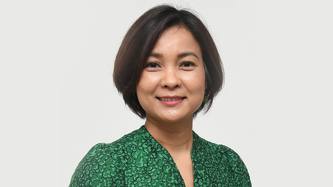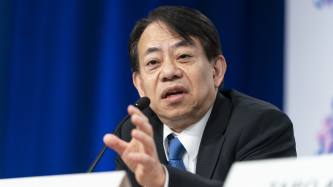Taiwan received an undiplomatic wake-up call on August 6, when the oil-rich central African nation of Chad broke relations with Taipei hours before Taiwan’s Premier Su Tseng-chang was scheduled to depart to attend the third inaugural ceremony for Chadian President Idriss Déby. The loss of oil-rich Chad – which foreign ministry sources said announced official links with the People’s Republic of China after scarcely veiled blackmail by Beijing to unleash Chadian rebels based in Sudan against Mr Déby if Chad did not break ties with Taipei – shrank the number of Taiwan’s official diplomatic allies to just 24.
While an unwelcome shock, the break may be the final spur needed for the recasting of Taiwan’s diplomatic strategy and practice.
Mr Su’s own declaration on the evening of August 6 that “Taiwan should pay more attention in our diplomatic work to quality instead of quantity” was a clear hint that the country would no longer be preoccupied with the number of its formal allies, of which the most heavyweight now are Paraguay and Panama.
The net loss of five allies under President Chen Shui-bian’s Democratic Progressive Party (DPP) administration has dashed hopes that Taiwan’s peaceful transition into a democracy would reverse the erosion of its international position, which began with the October 1971 expulsion of the Republic of China (Taiwan), then ruled by Kuomintang autocrat Chiang Kai-shek, from the United Nations in favour of the People’s Republic of China (PRC).
Lack of representation
Since then, Taiwan and its 23 million people have been bereft of representation at the UN, the World Bank and the IMF, the World Health Organization (WHO) and other sovereignty-based international organisations as a result of intense opposition from China. However, Taipei, under the name of the Special Customs Area of Taiwan, Penghu, Kinmen and Matsu, did accede to the World Trade Organization in early 2002.
“It is hard to deny that Taiwan’s overall external position has declined, at least in the short-term, mainly due to the rise of China’s diplomatic influence as well as economic and military power, the compromising attitude of other countries to Chinese pressure and Taiwan’s own internal partisan divisions,” observed Soochow University political science department chairman Lo Chih-cheng.
On May 20, Taiwan’s first official National Security Report warned that Beijing intended “to reduce Taiwan’s diplomatic allies to zero, leave Taiwan zero room for international political activity and diminish Taiwan’s leverage for negotiating with China on an equal footing to zero”.
In the face of Beijing’s “three zeros” campaign, DPP secretary-general Lin Chia-lung, a former cabinet spokesman and former National Science Council adviser, warned that the PRC’s push to get Taiwan’s remaining allies to cut ties and switch to Beijing constituted a “threat to the world democratic community”. “The PRC does not concern itself with human rights, and exporting weapons and playing an active role in conflicts, such as the civil wars in central and east Africa in order to capture strategic dominance as well as resources,” says Mr Lin.
In an interview with The Banker, he says that Taiwan “does not need to use the number of diplomatic allies as a benchmark to test to see whether we are an independent state or not”.
Towards democratic peace
Taiwan’s diplomatic strategy “should combine democratic values with the concern for security”, he says. “Promoting ‘democratic peace’ is our only strategic option.
“We should look beyond formalism and shift to building substantial partnerships in democracy, economics and trade, security, environment, rural development and health, human rights and other such issues where Taiwan can make a real contribution. The bottom line is that if you have power or influence, people will definitely have relations with you,” says Mr Lin.
Ministry of Foreign Affairs (MOFA) secretary-general Michael Lu told The Banker that Taipei no longer has the desire or the capacity to engage in so-called ‘cheque book’ diplomacy, noting that the MOFA’s budget, which is subject to intense scrutiny in the opposition-controlled national legislature, is now only NT$28bn, less than $9bn.
Half of this amount is devoted to international assistance programmes, which Mr Lu says are all “based on strict and transparent project-by-project evaluation with allocations of funds based on the actual progress of such projects”.
Hence, he maintains that Taiwan cannot engage in open competition with Beijing, citing huge promises made by the PRC government to induce former Taiwan allies such as Grenada and Senegal to switch ties in 2005.
A new approach
In a sense, Taiwan’s handling of the Chad break reflects the government’s new approach: it did not make any attempt to use promises of assistance to compete with Beijing, according to former Taiwan ambassador to Chad, Sung Tze-cheng.
Nevertheless, Mr Lu says: “Taiwan’s overall substantive international presence is still quite strong.” Taipei maintains a huge network of 121 overseas representative offices, including embassies, in its 24 remaining formal allies, he says.
“Taiwan is the world’s 19th largest economy, 16th most important trading nation, has a vibrant democracy and is very active in non-governmental international organisations,” says Mr Lu. Taiwan’s bids to gain representation in the UN and WHO, although so far unsuccessful due to Chinese opposition, “show the world that we are not a province of the PRC”.
To counteract the threat of isolation by China, the presidential National Security Report advised the adoption of a “flexible and pluralistic” diplomatic strategy based on “democracy, peace, humanitarianism and mutual benefit”. The report, which will act as a guideline for Taiwan’s security policy in the next two years, mandated moves to enhance Taiwan’s geopolitical value, promote economic and trade diplomacy for mutual benefit with developing countries, bolster ties with the European community with a focus on “cultural and high-technology Taiwan”, promote public diplomacy, and expand Taiwan’s well-respected international humanitarian assistance efforts, especially in medicine, health and rescue.
Professor Lo says: “Taiwan can use China’s need for a peaceful environment in which to expand its economy to restrain China.” But he adds: “Taiwan needs to find its own positive niche to either promote China’s change toward democracy and freedom of expression and religion, in what can be called transformational diplomacy, or by playing an essential role in regional security in any efforts to hedge against the possibility of an aggressive China by the US and Japan.”
Over-exposure to China
Another troubling factor is the indirect decline in Taiwan’s international economic influence that may be resulting from an over-exposure to investment and trade in China. From occupying between 30% and 40% of Taiwan’s offshore investment in the 1990s, the share of Taiwanese offshore capital taken by the PRC soared to 71.1% ($1.3bn) last year and to 54.4% accumulatively from 1991 to April 30, 2006. Similarly, more than 39% of Taiwan’s export market is now taken by China and Hong Kong.
In response, among the consensus proposals reached in the Global Deployment and Cross-strait Economic and Trade Relations section of the July 27-28 public-private Conference on Sustaining Taiwan’s Economic Development were plans to “actively participate in international economic co-operation and assist business with global deployment”. The proposals included using the WTO and Asia-Pacific Economic Co-operation forum to remove barriers to trade and investment, and achieving better integration of resources to help Taiwan’s businesspeople to deploy globally and diversify their foreign investments to include multiple markets.
An example is the Prosperous Neighbors programme in Central and South America, in which the government will offer matching funds for private investments in Taiwan’s allies in Central America and Paraguay.
Presidential diplomacy
Taiwan’s diplomats have also attempted to expand ties through non-official presidential diplomacy, such as Mr Chen’s eight-hour transit visit to Tripoli, Libya, and meeting with Libyan leader Muammar Abu Minyar al-Qadhafi on May 10 on the way back from state visits to Paraguay and Costa Rica. During that visit, Mr Chen reached agreement with Libyan officials on the mutual establishment of commercial offices and economic, cultural and technological exchanges. Libya opened visa-free entry for Taiwan tourists and began talks with Taiwan’s state-owned Chinese Petroleum Corporation on possible oil exportation projects.
Mr Lin also acknowledges that Taiwan’s most fundamental challenge involves how it should respond to the PRC’s economic rise, including the difficult issue of crafting Taiwan’s economic and trade policies with the PRC. “Participation in the WTO helps us to establish broader relations and avoid being isolated,” he says. He also advocates a strategy of “responsible openness” in cross-strait economic ties.
“We need to be responsibly open and responsibly not open if the consequences of opening are harmful for Taiwan,” says Mr Lin. Decisions about the investment framework with China need to consider the character of each industry, complementary measures and corresponding investment and employment and industrial upgrading.
However, Mr Lin says that Taiwan faces major problems in cross-strait economic ties “because China used unilateral behaviour and unfair trade to Taiwan in the form of tariff barriers, gross violations of intellectual property and discriminatory treatment”.
“Because China is a WTO member, we and other WTO members should demand that they respect the principles and practices of fair trade and carry out the marketing-opening measures they promised when they applied to join the WTO,” he says.
Interview: Accent on partnerships (Taiwan’s Foreign Minister: James Huang)











